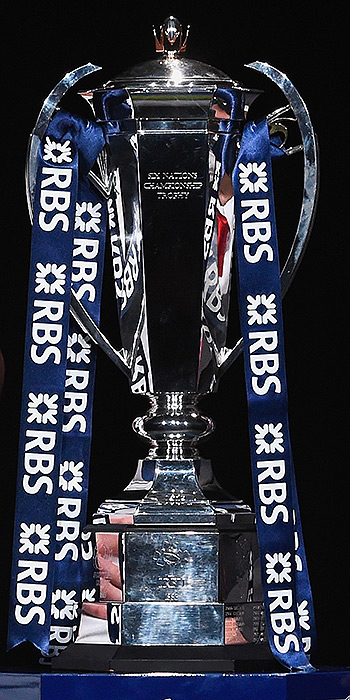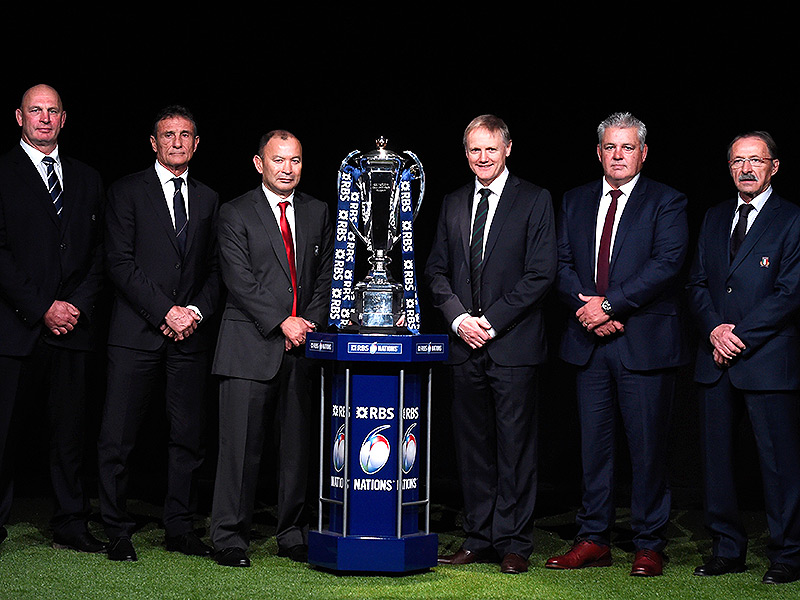Flatman: Fear of failure may be restricting the north
When the Six Nations get underway on Saturday, the media spotlight will be on the influence of the four Southern Hemisphere coaches – Australian Eddie Jones (now coaching England), New Zealander Joe Schmidt (Ireland), Kiwi Vern Cotter (Scotland) and New Zealander Warren Gatland (Wales).
Despite this heavy Southern Hemisphere influence, the perception remains that the game in the Northern Hemisphere is a stodgy, structured affair.
Some statistic show that in the last three seasons of the Rugby Championship, the average number of tries per game was 5.5, 4.2 and 5.5. In the last three seasons of the Six Nations, the numbers were 2.9, 3.4 and 2.6.
At the World Cup last year, in seven matches against other tier one nations, finalists New Zealand and Australia scored 25 tries and kicked 18 penalties between them. In 13 matches, all four teams from the Rugby Championship scored 34 tries and kicked 46 penalties.
In 15 matches, teams from the Six Nations scored only 17 tries and kicked 51 penalties last year.
However, Flatman feels the reason for the 'conservative' approach may well be the promotion-relegation systems in place in the major competitions in Europe – the 'fear of failure' resulting in teams going into their shells.
"There is a lot of talk about Northern Hemisphere being more conservative, more structured, but up here teams are more coached by New Zealanders and some South Africans," Flatman told rugby365 in an interview in the build-up to the Six Nations' opening weekend.
"It is their [Southern Hemisphere coaches'] game-plans that are being translated on the field.
"I wonder if it is because in Super Rugby you are guaranteed your spot and over here, throughout our Premiership season, there is a lot more focus on relegation.
"There is a big focus on not losing for a lot teams and that switches a mindset immediately.
"Any team has a lot to lose. If you are at the top of the log you have that position to lose and potentially the trophy to lose."
Flatman, who is working with the Accenture Analysis Team to provide data-based match insights, said statistics show teams do sometimes throw off the shackles.
"The data shows us that England and Wales have cut loose on the big stage," Flatman said, adding: "It does seem there's quite a tangible difference between going out to win and going out not to lose.
"You compare the Wallabies' style during the World Cup, with the Springboks and you saw the Boks, after their loss to Japan, they became pretty conservative.
"They were very route one, a very basic game-plan," he said of the Boks' change in tactics at the World Cup.
"Coaches just have to be intelligent enough to work with the players they have, select the right players for the game they want to play."
The former England prop said there is a fascinating mix of perceptions about the game in the Northern Hemisphere.
"Guys like you and guys like me have perceptions and views, yet there is pretty incredible data out there that can debunk those perceptions," he told rugby365.
"The game becomes so much more fascinating, because opinion – while still valuable – becomes less important than what it was a generation ago."
Flatman also dismissed the notion that the Six Nations players will be under pressure because they all flopped at the World Cup last year, where the Southern Hemisphere teams dominated and not a single team from north of the equator reached the semifinals.
"This hemispheric battle is more to do with those who are not on the field," he said, adding: You and me make more of that than what the players do.
"Once players get out there they won't be thinking how their performances will compare with those of the Southern Hemisphere.
"The Six Nations is a big tournament and hugely significant in the minds of these players.
"Of course comparisons will be made, but that is for people with more time on their hands and less training to do."
He said it is the rivalry that makes the Six Nations special and puts it apart from other competitions.
"There is a geographic proximity that makes the rivalry more intense.
"England will feel they have a rivalry with the Australians, just as much as they do with the French.
"But that is more of a sporting rivalry, a friendly clash of cultures.
"In the Six Nations those cultures are not from the other side of the world, they are from the other side of the road.
"The English spend a lot of time with the Welsh people, Scottish people, French people and Irish people. That level of contact intensifies the rivalry."
He said another aspect that sets the Six Nations apart is it is the one tournament that is not yet a pay-per-view tournament.
"Everyone in the country can just turn on a terrestrial TV and watch it.
"You don't necessary watch league matches every week, but the internationals become special occasions because they are so accessible.
"Here it means almost as much as a World Cup."
By Jan de Koning
@King365ed
@rugby365com
* Interview brought to you courtesy of Accenture . David Flatman, who played the last of his eight Tests for England in 2002, is part of the Accenture Analysis Team during the Six Nations, providing fans with insight and analysis to #Seebeyond standard match data. Follow @AccentureRugby or visit accenture-rugby.com. Download the Official Six Nations app.
** Don't miss Part Two of our interview with David Flatman, when he speaks about how Southern Hemisphere coaches benefit for migrating north and why South Africa should follow New Zealand's example.










































